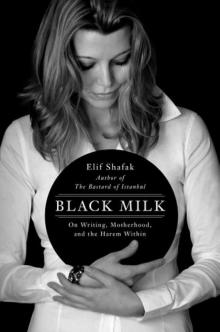- Home
- Elif Shafak
Honor Page 17
Honor Read online
Page 17
Striding across the hall, he went to the bathroom, turned on the light and observed himself in the mirror. He frowned at his sunken eyes, the marks on his cheeks from old spots, the white streaks in his hair – how could his hair become hoary while his moustache was still black? He was going to trim his stubble, the way he had every morning for over fifteen years. But his right hand seemed to have another plan. With a sudden urge, he grabbed the razor.
When Adem came out of the bathroom, clean-shaven, he saw Roxana sitting up in bed, leafing through a women’s magazine. He had only to glance at her to know that she had slept poorly and was not in the best mood.
‘Do you have coffee for me?’ she said, without looking up.
‘Sure.’ His voice sounded vaguely different when talking to her, like an echo of his own.
‘My neck hurts again.’
He began to massage her neck, drawing widening circles above her shoulders, his hands settling momentarily on the small of her back. She let out a moan, her body relaxing as if in a foamy bath. He kept massaging, with more strength, until his fingertips met around her neck, accidentally at first, then with a purpose. It occurred to him, and not for the first time, that he could kill this woman. He said, ‘I’ll go make your coffee.’
‘Wait.’ She studied him intently. ‘What have you done to your face?’
‘Oh, my moustache,’ he said. ‘Do you like it?’
Even though Roxana nodded, she wished suddenly, and without quite knowing why, that he hadn’t shaved it off, that he didn’t love her this much and that everything could be different. A sad smile settled into the corner of her mouth, and all the bitterness seemed to bleed away from her.
Silent Surprise
London, 2 January 1978
Early in the afternoon, a golden glow illuminated the windows of the Crystal Scissors, where a bunch of Christmas decorations hung like ripe grapes, bathing the interior in a glittering light. Still reeling from a party the previous night, Rita was drinking her third cup of black coffee when the door opened and a middle-aged man walked in. His face was animated and bright, and he carried himself with a quiet confidence that could have been distancing, were it not for his warm smile.
Raising an eyebrow, Rita examined the stranger from head to toe. He didn’t look like a representative for one of the shampoo companies or a petitioner trying to collect a few more signatures. Nor did he have the air of an inspector who had come to check the sanitary conditions at the salon. Well dressed and proper, he seemed a decent man – but one never knew these days.
‘May I help you?’ said Rita.
‘Yes, please. I’d like to have a haircut.’
Rita let out a chuckle. ‘I’m afraid we’re not open yet. Not for another fifteen minutes and –’
‘Oh, I can wait outside, no problem.’
‘I was gonna say, this isn’t a unisex salon. Why don’t you try the barber around the corner?’
‘Ah, I’ve been there before,’ said Elias. ‘That man should call himself a butcher, not a barber.’
‘Well, I’m sure we can find you a good place,’ Rita conceded, a hint of amusement in her voice.
‘Just wondering,’ he said in a sweeter tone, ‘have you noticed lately how many salons have turned unisex?’
‘Really?’ asked Rita in mock amazement. She hadn’t yet ruled out the option that he might be some sort of lunatic.
Working in the tiny room at the back, Pembe stopped cleaning the hairbrushes, and strained to hear who on earth Rita could be talking to. She thought she recognized the voice, but it couldn’t possibly be him. Her heart leaping into her throat, she tiptoed into the salon. Such was her astonishment at seeing Elias chatting with her boss that she leaned against the wall, incapable of making another move.
Elias hadn’t seen Pembe enter. ‘I’ve kept my hair long for the past four years. I feel it’s time for a change,’ he was now saying.
‘Uh-hmm, I always say to my customers, ladies, long hair is for women. That’s the way the good Lord made it.’
By now Pembe was convinced that she had to intervene and shoo him away, but try as she might she couldn’t think of a way to do it. Pursing her lips, and biting them raw, she continued to watch them.
‘Then perhaps you’d consider helping me,’ Elias said. ‘I’m a chef, you see. Every day a customer complains about hair in his soup.’
Rita laughed. ‘I’d love to help, darlin’, but I’m waiting for my half-twelve appointment.’
‘I do it,’ Pembe butted in.
Both Rita and Elias turned aside and gaped at her, arms slightly akimbo, faces grim, as if they had forgotten who she was. Doing her best to sound casual, Pembe added, ‘I cut his hair.’
It wouldn’t be the first time. Though she had not trained as a hairdresser, Pembe had been observing Rita long enough to know the ropes. Cutting the hair of her children, especially of her sons, for many years had also taught her a few tricks.
‘Well, that’s settled, then,’ Rita said with a dismissive shrug. She was about to add something else, but the door slammed open and her customer popped in. Rita walked towards the woman, her arms wide open. ‘Margaret, how nice to see you.’
In the meantime, Pembe ushered Elias to a chair at the end of the room, where she whispered tensely, ‘Why you here?’
‘Sorry, I had to see you.’
‘No, you don’t!’ she said, sounding like a petulant child. She put a smock around his neck, lined up the scissors on a plastic tray and began to wet his hair with a spray bottle.
Elias saw that Pembe was so vexed by his presence her hands were shaking. He felt such a strong urge to hold her and to apologize for upsetting her that he had to take a deep breath to control himself. He half regretted his bit of mischief. Nonetheless, the pleasure of having her this close outweighed the guilt. He watched her every move in the oval mirror on the wall. At her touch he closed his eyes, and when he opened them he saw that she, too, was observing him. Her next words, however, did not match the compassion in her stare: ‘I cut your hair, but don’t come more.’
‘All right, don’t worry. I promise, I won’t come here again.’
Relieved, Pembe smiled for the first time. ‘And how do I cut?’
‘Now that, I dunno.’ Elias had always kept his hair the same way and was only now beginning to realize he was not quite ready to change his style. But he said, ‘Make me handsome, please, something nice.’
‘You’re nice already,’ Pembe muttered in a voice so low it was a miracle he heard her.
Laughter broke out at the other end of the room. Rita and her customer were gossiping with gusto, engrossed in a world of their own.
‘I need to ask you something.’
‘What is it?’ she replied apprehensively.
‘Look, I . . . I’d like to get to know you better, and spend more time together. But if you’d rather I stay away from you, tell me.’
Pembe flinched. Her face paled a little, and after what seemed an eternity she mumbled, ‘Don’t stay away.’
Elias raised his right hand – the hand that was closer to the wall and therefore concealed from all eyes – and caught Pembe’s right hand. It was the first time they had touched in a way that wasn’t accidental, or a shy encounter, beset with guilt and panic. Like a falling man reaching out for a rope, he grabbed her hand and squeezed it so tightly it hurt. She didn’t mind, for she felt the same – the intensity, the belatedness, the impossibility. Her hand grew as small as a sparrow in his.
They stood like that for another second until she pulled away. ‘How I cut?’
‘Make it like his, please,’ Elias heard himself say.
Pembe followed his gaze to the nearby table, on which a magazine was open to a picture of a man at an awards ceremony – an athletic Hollywood star with porcelain teeth and suntanned skin. ‘Like him? No! Yes? Sure?’
She couldn’t help the giggle that escaped her.
‘Absolutely, I’ve always wanted to look like a celebrity.’
She took the magazine and studied the photo, even though she knew that he couldn’t care less about the actor, that he was only buying time to be close to her. For the next half hour she toiled in silence, her brow furrowed in concentration. No more words were exchanged. Each time Rita stole a look at how they were doing, she saw only Pembe working and the strange customer reading one glossy magazine after another.
When she was finished Pembe took a mirror and showed him the back of his head. Elias heaved a sigh, trying not to be demoralized by the shortness of his hair and the sight of his nape. As she was taking off his smock, he asked, as if in passing, ‘Do you like films, Pembe?’
‘What?’
‘I mean, cinema. Do you like to go?’
Pembe nodded, smiling. During the early years in England she had asked her children to take her to the cinema several times, which they had done, but language was always a barrier. She had found it difficult to follow the dialogue. ‘Why you ask?’ she said.
Now Elias approached, his eyes locked on hers. ‘I’ve left something under the hairspray. Take a look at it, please.’ Then he raised his voice to a merry pitch: ‘Well, thank you very much. You’ve done a terrific job.’
From the other end of the salon Rita beamed, pleased to see another satisfied customer. While she and Elias exchanged pleasantries and he paid, Pembe stayed put, her eyes fixed on the can of hairspray. There was a ticket there – next Friday at four p.m. at a cinema in East Finchley. It was an old film. Black and white, and silent.
Disgrace
London, 5 January 1978
Tariq was the proud owner of a corner shop on Queensbridge Road. Six days a week, twelve hours a day, he sold sweets, snacks, toiletries, fizzy drinks, frozen food, cigarettes and sundries. He also had a stand where he displayed myriad newspapers and magazines, some of which made him frown each time his eyes slid over them – Mayfair, Men Only, Fiesta, Knave, Penthouse, Club International. There was too much indecency in this country; all this nakedness was no good. He couldn’t understand for the life of him how some men found pleasure in these publications, and neither could he comprehend the women who posed in them. Didn’t they have families – fathers, husbands or brothers? He kept the obscene material at the far end of the rack, under the tins of tuna and condensed milk, where their fans could still find them, but they would not bother innocent eyes.
Feeling hungry, Tariq checked the clock on the wall. It was only a quarter past eleven. His wife, Meral, brought him lunch in a tin pail every day at half past twelve – kofta with minted yoghurt, smoky aubergine purée, rice with garbanzo beans. A samovar would hiss in the background, ready to serve. For during an ordinary day, from morning till late in the night, Tariq guzzled around thirty glasses of tea, which he liked dark and plain, and with a sugar cube that he sucked on each time.
While he ate, Meral would make herself busy, mopping the floor, dusting the shelves and polishing the sign in the window that said Oasis Mini Mar et. He intended to fix the k but he never seemed to have the time to do so. Besides, the customers didn’t seem to mind.
When the food was finished, Meral would take the empty pail and head home to finish her chores. Perhaps one day he would ask his wife to help him run the store, but he would never allow her to work in a distant place among strangers, the way Adem let Pembe. It just wasn’t right. Unless there was a financial crisis, a woman should not have to look for a job.
Neither before nor after lunch did Tariq visit the local mosque, like some of the shopowners in the area. He was not a religious man – although those who saw him with his bushy beard and a rosary in his hand tended to assume the contrary. The beard he kept because it suited his face and also hid the pockmarks underneath. And the rosary was more out of habit than piousness. He had a collection of them at home – bright amber, light turquoise, coral pink, opaque onyx, jade green. Fast and steady, he fingered the beads, filling the shop with a constant clatter, which he didn’t notice, over the drone of buses going past or cars screeching to a halt at the lights.
Of the three brothers, Tariq was the eldest, and had been the first to leave Istanbul to work abroad. Initially he was employed at a factory that produced machinery in a small town called Troisdorf in Germany. He had found the job taxing, the Germans unreachable and their language impossible. The Germans invited you to their country to work, not to mingle, and expected you to leave as soon as you were no longer needed. Adapting to their ways was like trying to embrace a hedgehog. There might be a secret tenderness, a gentle core underneath, but you couldn’t pass the sharp needles to tap into it. The immigrant community could have helped him find his feet to feel less vulnerable, and thereby less resentful, but Tariq had never been skilful at making acquaintances, and the years in Germany were no exception.
Once, however, he befriended a Tunisian co-worker, and the man had taken him to Große Freiheit in the red-light district in Hamburg. Neon signs, music clubs, peals of laughter in all languages. Tariq was appalled to see women displaying their bodies like mannequins in shop windows. But their aloof expressions, the poise in their stare, were just as disturbing. They were not like the prostitutes in old Turkish films, buffeted and beaten by life.
‘You like go in?’ his friend asked in pidgin German, so he’d understand, pointing to an entryway decorated with blinking bulbs.
‘What’s in there?’
A smirk made its way across the man’s face. ‘What’s in there?’ he repeated in mock horror. ‘Pussies, man. Blonde pussies.’
Tariq dropped his eyes, scowling at the stains on his boots. He mumbled a response so low it went unheard. ‘I don’t want to.’
His friend gave him a look of disdain. ‘Up to you, man. If you can’t do it, you can’t do it.’
Tariq thought about hitting him, delivering a kick in the shins with his muddy boots, but the urge went away as swiftly as it had come. He watched the man whisk in through the door and out of sight, leaving him in the dimly lit street, where he could now hear a woman singing behind closed windows.
The same week at the factory Tariq learned from other workers that the man was telling everyone about how he had bottled out at the brothel, saying he didn’t feel ‘up’ to it. People sniggered behind his back. Some suggested he could be a queer. Tariq was already planning to get married that same year, but the incident accelerated his plans. When he brought his bride from a town in Anatolia – a third cousin on his father’s side – he asked Meral to visit the factory every day for the first month, so that they could all see he wasn’t one of those queers, and shut their mouths.
*
At 12.25 the shop door swung open and Meral ambled in, her cheeks rosy from the wind. Today’s menu was lentil soup, stuffed green peppers and tulumba.* She watched him eat for a while, taking pride in his appetite. Then she said, ‘Pembe stopped by this morning.’
‘What does she want?’
‘She didn’t ask directly but I think they’re in need of money.’
‘Money, money, money . . .’ Tariq droned.
Tariq had once seen a film in which the hero turned into a gangster to save his younger brother from poverty, and to provide him with a better future than the one God had seen fit to give him. In the end, unexpectedly, the younger brother, who had now become a police inspector, arrested the hero, even though he respected, loved and admired him, and was indebted to him for life.
But their own family story was not one of villains and heroes. Though he had done his best to help his two brothers keep their heads above water, wanting to believe that with some support they could change their destinies, Tariq knew that he was a limited man, and so were Adem and Khalil. His brothers had followed in his footsteps and become immigrant workers – one in Australia, the other in England. After a few years Tariq quit his j
ob in Germany and went to England, where they said the weather was horrible but the people were polite.
Now, as Tariq dunked his bread in his soup, he inquired, ‘Does Pembe know where he is?’
‘She doesn’t have a clue. But . . .’ Meral paused, as she poured boiling water into the porcelain pot on the samovar. ‘She knows that he’s moved in with another woman.’
‘Well, what do you expect, if she’s not woman enough to keep her husband home . . .’ Tariq said, leaving the sentence unfinished.
Adem should have never married that woman. There were better girls for him and yet, inexplicably, he had fallen for Pembe. Why her, and why so suddenly, Tariq had never understood. Not that he didn’t see Pembe’s beauty. But in his eyes this only added to her unreliability. Men were mistaken when they coveted attractive women. They could flirt with them in their bachelor days, but a spouse ought to have attributes other than good looks. From the very beginning he had opposed this marriage. But Adem had been alone in that godforsaken Kurdish village when he asked for Pembe’s hand. Alone, and terribly young.
When their mother ran away with another man, Tariq had been sixteen years old, Khalil thirteen and Adem only eleven. In all the millions of homes in Istanbul mothers did their very best to keep their families together and children content, and yet their mother, only theirs, had walked out on them.
Not everyone would understand this, but their honour was all that some men had in this world. The rich could afford to lose and regain their reputation, buying influence as perfunctorily as ordering a new car or refurnishing their mansions, but for the rest of the world things were different. The less means a man had, the higher was the worth of his honour. The English didn’t understand these ancient rules. Their wives could kiss other men, drink and dance with strangers, and they would look on smiling.

 Black Milk: On Writing, Motherhood, and the Harem Within
Black Milk: On Writing, Motherhood, and the Harem Within Three Daughters of Eve
Three Daughters of Eve The Architect's Apprentice
The Architect's Apprentice The Gaze
The Gaze The Flea Palace
The Flea Palace 10 Minutes 38 Seconds in this Strange World
10 Minutes 38 Seconds in this Strange World The Forty Rules of Love
The Forty Rules of Love Honor
Honor The Bastard of Istanbul
The Bastard of Istanbul Black Milk
Black Milk The Happiness of Blond People (Penguin Specials)
The Happiness of Blond People (Penguin Specials)